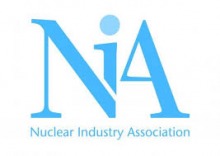Nuclear Reactors 279 - Nuclear Industry Association Lays Out Issues To Be Negotiated For The Brexit
When the U.K. Parliament passed the bill at the end of January authorizing the exit from the E.U., they included a note to the effect that the U.K. would also be leaving Euroatom at the same time. At the end of March, the Prime Minister of the U.K. triggered Article 50 which calls for a two-year period during which the U.K. and the European Union will negotiate over the exact terms of the U.K. exit.
The Nuclear Industry Association (NIA) “represents more than 260 companies including nuclear power station operators, new build developers, and vendors, those engaged in decommissioning, waste management, all aspects of the nuclear fuel cycle, supply chain and consultancy companies.” The NIA issued a position paper today titled Exiting Euroatom which outlined the major issues that the U.K. must negotiate with the European Atomic Energy Community (Euroatom) in order to ensure a smooth transition for the UK and European nuclear industries as the U.K. leaves the European Union.
The NIA position paper outlined six areas of concern that they insisted must be part of the nuclear-related negotiations between the U.K. and the E.U. The U.K. must draft a Voluntary Offer Agreement with the IAEA with respect to a U.K. nuclear safety regime to replace the current E.U. safety regime which will no longer be applicable.
The U.K. will have to negotiate new Nuclear Cooperation Agreements (NCA) with nuclear vendors such as Australia, Canada, the Euratom Community, Kazakhstan, South Korea and the USA because it will no longer be a part of the E.U. arrangements with nuclear vendors.
The U.K. currently has NCAs with Japan, the U.S. and some other countries that supply nuclear technology and materials. These existing agreements will have to be reviewed and in some cases modified to take into account the U.K. exit from the E.U.
The U.K. will have to explicitly define the protocols and procedures for the safe transport of materials, goods, people and services involved in the nuclear industry because previously the U.K. could employ the transportation standards of the E.U.
The U.K. is currently involved in R & D projects related to nuclear materials and technologies as part of the E.U. Once the U.K. has exited the E.U., the U.K. share of the funding for these projects must be renegotiated on a project by project basis.
Finally, the U.K. must do all it can to ensure international confidence in the U.K. nuclear program and to find the necessary funding needed to support major nuclear projects.
Tom Greatrex, NIA chief executive, said: "The UK civil nuclear industry is ready and willing to work with the government as it begins the process of putting replacement arrangements for Euratom in place. The clock is ticking, and this is a priority of increasing urgency. This new report demonstrates that without new arrangements in place by the time the UK leaves the Euratom Community, there is scope for real and considerable disruption. The industry has not only set out the priority areas that need to be addressed, but also the steps we think the government needs to take to address those issues.
Government ministers have stated their desire to both work with industry and to ensure the same high standards will continue to apply as the UK leaves the EU - there is no disagreement on that principle. The government now needs to get down to the work of putting such arrangements in place, including a prudent approach to ensuring there are transitional arrangements in place, to avoid a gap in regulation. That would not be in the interests of the EU, the UK or the industry globally."
